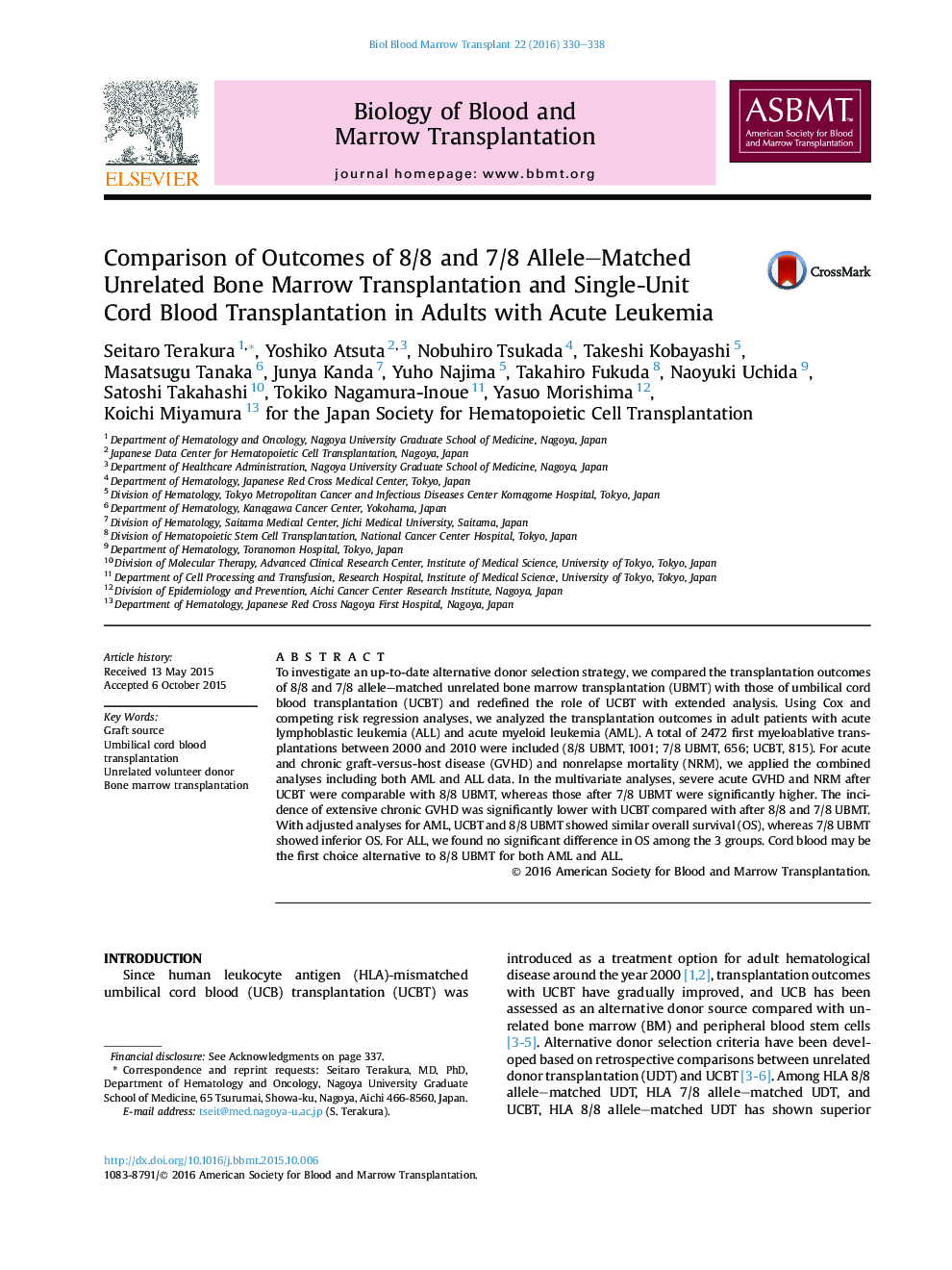| Article ID | Journal | Published Year | Pages | File Type |
|---|---|---|---|---|
| 8431190 | Biology of Blood and Marrow Transplantation | 2016 | 9 Pages |
Abstract
To investigate an up-to-date alternative donor selection strategy, we compared the transplantation outcomes of 8/8 and 7/8 allele-matched unrelated bone marrow transplantation (UBMT) with those of umbilical cord blood transplantation (UCBT) and redefined the role of UCBT with extended analysis. Using Cox and competing risk regression analyses, we analyzed the transplantation outcomes in adult patients with acute lymphoblastic leukemia (ALL) and acute myeloid leukemia (AML). A total of 2472 first myeloablative transplantations between 2000 and 2010 were included (8/8 UBMT, 1001; 7/8 UBMT, 656; UCBT, 815). For acute and chronic graft-versus-host disease (GVHD) and nonrelapse mortality (NRM), we applied the combined analyses including both AML and ALL data. In the multivariate analyses, severe acute GVHD and NRM after UCBT were comparable with 8/8 UBMT, whereas those after 7/8 UBMT were significantly higher. The incidence of extensive chronic GVHD was significantly lower with UCBT compared with after 8/8 and 7/8 UBMT. With adjusted analyses for AML, UCBT and 8/8 UBMT showed similar overall survival (OS), whereas 7/8 UBMT showed inferior OS. For ALL, we found no significant difference in OS among the 3 groups. Cord blood may be the first choice alternative to 8/8 UBMT for both AML and ALL.
Related Topics
Life Sciences
Biochemistry, Genetics and Molecular Biology
Cancer Research
Authors
Seitaro Terakura, Yoshiko Atsuta, Nobuhiro Tsukada, Takeshi Kobayashi, Masatsugu Tanaka, Junya Kanda, Yuho Najima, Takahiro Fukuda, Naoyuki Uchida, Satoshi Takahashi, Tokiko Nagamura-Inoue, Yasuo Morishima, Koichi Miyamura,
